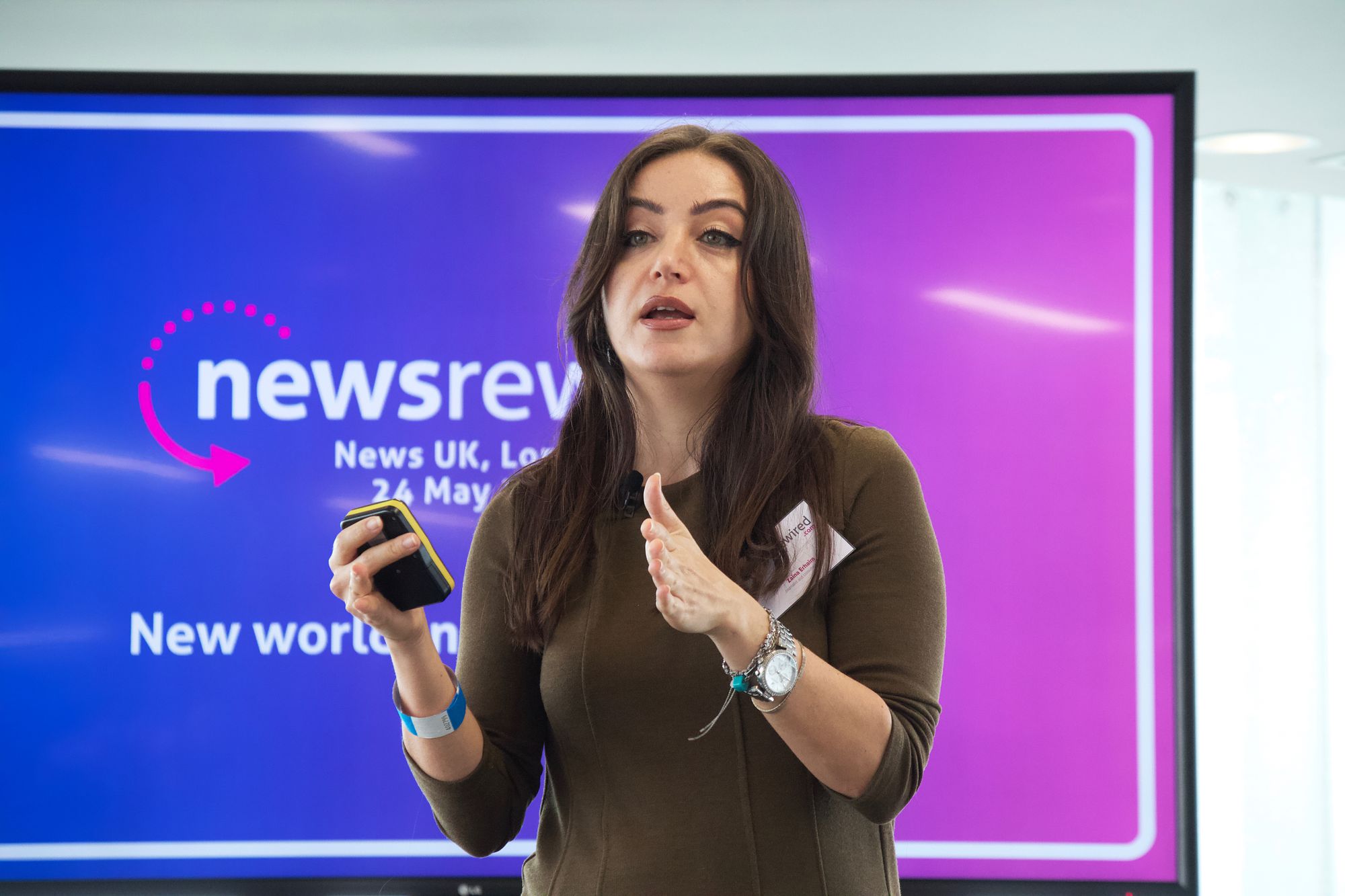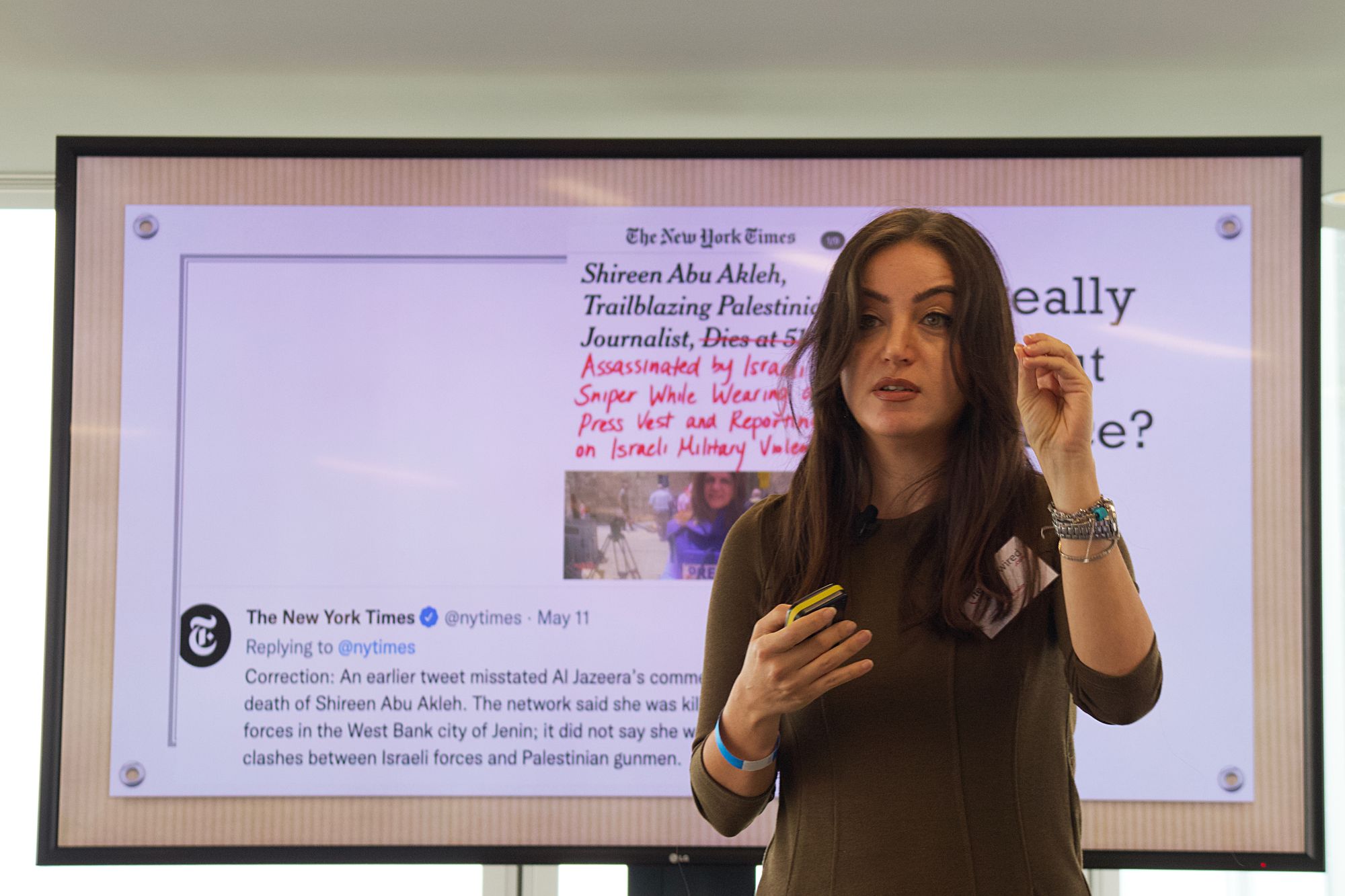
Zaina Erhaim: how to respect local journalists in crisis zones
The contrast between the coverage of war in Syrai and Ukraine is shocking and stark, argues the news:rewired keynoter. Here's how we can do better.
Zaina Erhaim is a Syrian journalist and activist who has won multiple international awards for her work on conflict reporting and training citizen reporters. Erhaim directed the documentary series Syria’s Rebellious Women, and has worked with the BBC, Alhayat, Orient TV, the Guardian, the Economist, and Die Zeit. She opened 30th news:rewired with her keynote.
The objectivity myths
You hear wherever you go that local journalists cannot be objective. She thinks that’s a myth — it cannot be justified. Conversely, she also thinks it’s a myth that foreign journalists are actually and completely objective.
Should we really take the “same distance” from all sides of a story? Should we take the same distance from a proven criminal and dictator as from the people whom he tortured and pressed? Should we give the same microphone to someone who can shout as to someone who has no voice at all?
She and her partner have lived right by a war, in a city where it was hard or impossible to do journalism, because of the constant danger. She took a call from the BBC to appear as a witness, and she cried on the call. Was that puncturing her independence? No. Seeing kids bombed during their exams is not a casual event, to be reported without emotions. Terms that become abstract for others like refugees and displaces, are not abstract for people living amidst a crisis.
Being part of that — losing friends, classmates, a home — doesn’t make you biased, its makes you closer to the story and so better able to give context.
The dangerous assumptions in our reporting
The Ukrainian war has proven many of our assumptions about reporting are just wrong. They are driven, in her mind, by colonial white supremacy, rather than ethics and journalistic standards.
Ukraine is the second social media war, after Syria — but people keep referring to it as the first in print, earning what happened in Syria. Ukraine is the first TikTok war, maybe, but not the first social media war. That was Syrian.

The Ukrainian coverage has been about the mechanisms of war, and about elites, not the victims. The glorification of foreign fighters heading to Ukraine was deeply shocking to her. Contrast the coverage of Shireen Abu Akleh’s death and that of Brent Renaud. Why are the words “clashes” and “tense” used about Shireen’s funeral, when there is clear, live-streamed video of shots being fired into the crowds?
Disrespecting local journalists
Local journalists face having their professionalism and testimonies questions. They are quoted more than they are bylined. They are being asked to challenge their internal biases. And they are often expected to work for free for the “benefit” of working for a big media name.
They even face focused, targeted disinformation campaigns to discredit them. Or disinformation conduits are given a platform on major media channels so, the show can appear to be “objective”.
So, what to do?
The journalist’s role is to knock down the polarised world. But how?
Fixing our global reporting
The three steps Zaina recommends are:
- Challenging the bias in all of us
- Be biased towards human rights and humanity
- Fair reporting is objective reporting.
10 steps to better reporting
Some more detailed advice:
- Local journalists are not just free sources. Byline them.
- The security of local journalists is more important than any story. It’s expensive to relocate then and their family if you’ve put them at risk.
- Listen to the locals; don’t impose your international perspective on them.
- Ask the people who you interview/work with how they are, before going for the quote. She experienced this — or the lack of it — in Aleppo.
- Your translator and interviewees may be at risk for working with you. Be considerate. Treat your journalists and translators as people first and foremost.
- You are not the story.
- People don’t need journalists to be their voice - they need representation
- Help local journalists with pitching their stories
- Invest in local journalism development
- And remember that local journalists are the experts
Sign up for e-mail updates
Join the newsletter to receive the latest posts in your inbox.










